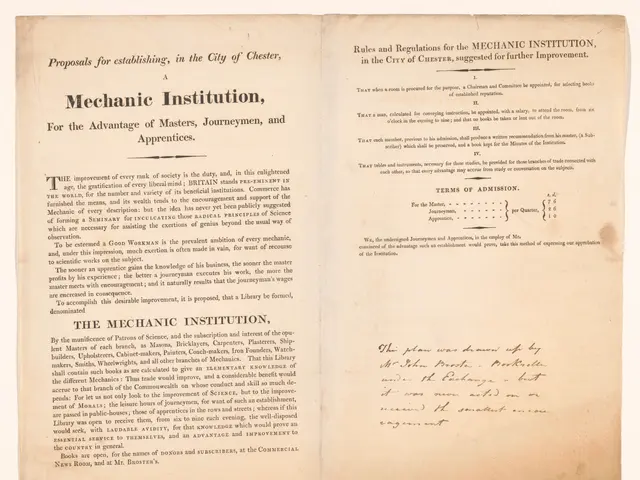Renault potentially facing troubles; speculations rise about Nissan's plan to offload a segment of its shares.
Struggling Nissan Seeking 6 Billion Euros through Debt Issuance and Asset Divestiture
In an attempt to alleviate its debt and restructure its workforce, the Japanese automaker Nissan is aiming to raise approximately 6 billion euros. This ambitious goal is being pursued by issuing debt and offloading some of its assets, potentially including a portion of its stake in Renault.
Nissan, a global corporation in which French Renault holds a 35% stake, is undergoing a painful restructuring process that includes proposed job cuts totaling 20,000 worldwide by 2027, representing 15% of its global workforce. Facing a looming wall of debt, the company is now contemplating issuing up to 630 billion yen (3.86 billion euros) in convertible bonds and bonds, according to Bloomberg's recent report.
Amid these efforts, it has been reported that Nissan is exploring the sale of factories in South Africa and Mexico, as well as part of its equity in Japanese battery maker AESC and French automaker Renault. The company has also secured a £1.19 billion syndicated loan, guaranteed by the UK government agency UK Export Finance. Nissan declined to comment on the speculations regarding asset sales when contacted by AFP, stating that they do not comment on rumors.
Nissan and Renault, both holding reciprocal shares, have recently announced a plan to further ease their alliance, reducing the minimum holding requirement from the current 15% to as little as 10%. This adjustment allows Nissan to sell Renault shares if necessary to acquire additional funds. The partnership's scope had already been scaled back in 2023.
Among the potential sale-and-leaseback scenarios being considered is the sale of Nissan's global headquarters in Yokohama, Tokyo's suburbs. However, these plans have not yet been approved by the group's board, and may still change.
Nissan is grappling with financial pressures, including a projected near-zero excess cash balance by March 2026 and approximately $5.6 billion in debt repayments due next year. The company's CEO, Ivan Espinosa, is aiming for positive operating profit in the automotive business and positive free cash flow by the fiscal year ending March 31, 2027. These ambitious goals are central to Nissan's restructuring strategy.
- Nissan, amid its financial struggles, is also considering ventures outside the automotive industry, exploring the possibility of selling a portion of its stake in the aerospace sector, such as its equity in Japanese battery maker AESC or potential sales of factories that could be leveraged for manufacturing in other industries.
- As Nissan continues to seek financial stability, it might also look into strategic partnerships and investment opportunities within the finance sector, possibly using the proceeds from its asset divestiture to secure long-term growth and ensure its competitiveness in the manufacturing industry, both in automotive and potential new fields.








